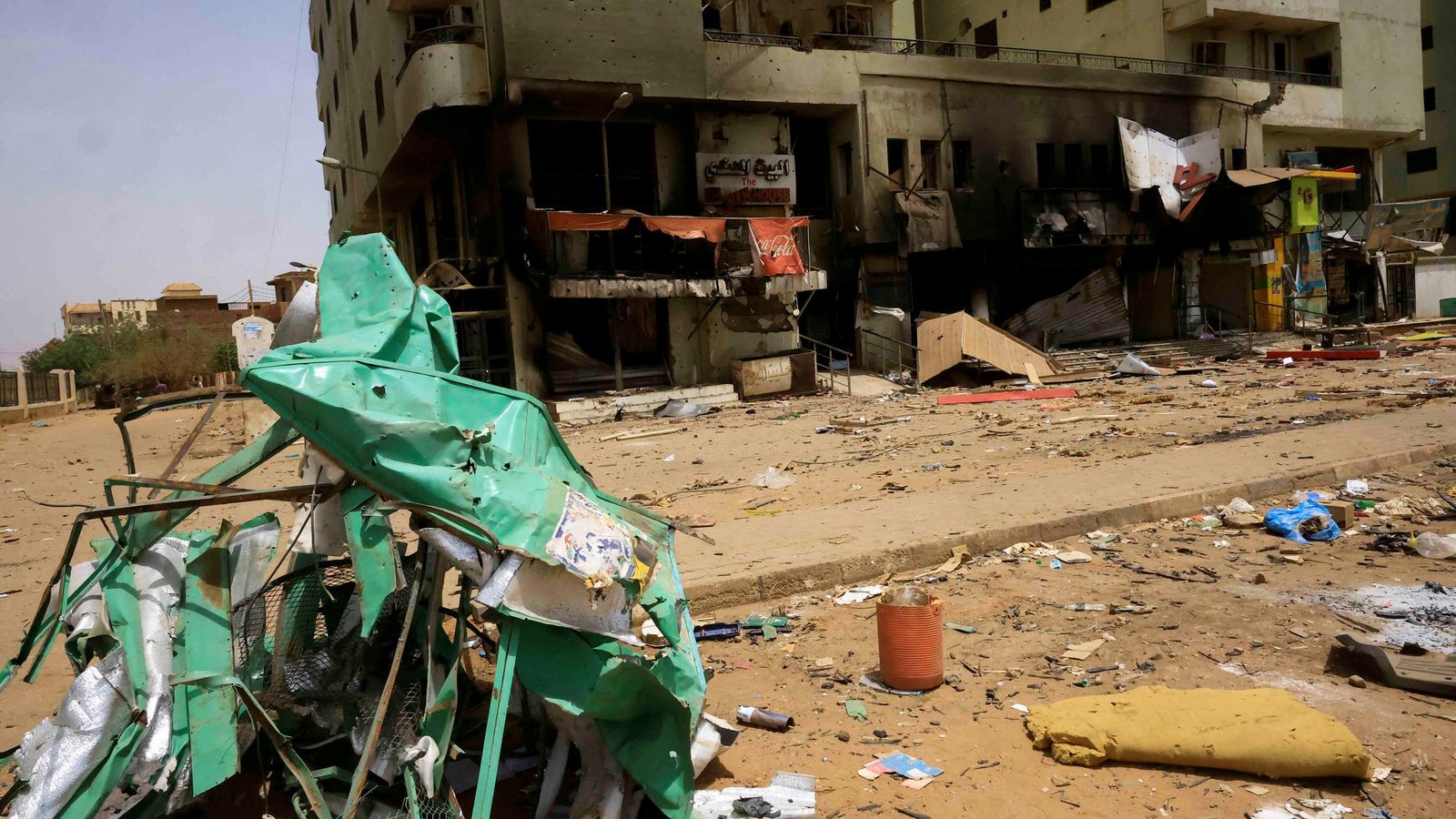A ceasefire in Sudan has been extended for three more days despite continuing reports of heavy fighting in the capital Khartoum and the western region of Darfur.
The truce between Sudan’s paramilitary Rapid Support Forces (RSF) and military had been due to expire at midnight, but the US and Saudi Arabia brokered a new deal.
Foreign Secretary James Cleverly has urged Britons in Sudan to “proceed to the airport as quickly as possible to ensure their safety”.
The British evacuation mission has rescued at least 897 people, as the White House said it was concerned by ceasefire violations and warned the situation “could worsen at any moment”.
Eight British flights had left Sudan as of 4pm on Thursday, with the Foreign Office promising “further flights to come”.
Mr Cleverly warned Britons stranded in Sudan that it could be “impossible” to evacuate them when the ceasefire expired – as he urged people to head to the airfield north of Khartoum as soon as possible.
More than 2,000 British nationals in Sudan have registered under the evacuation plans, out of around 4,000 British passport holders that are thought to be in the country, with British military chiefs saying they have the capacity to evacuate at least 500 people per day out of Wadi Saeedna airfield.
Sudan: Warring military factions agree ceasefire extension as foreign secretary urges Britons to leave
Traumatised Sudan evacuees describe ‘horrendous’ scenes in Khartoum as they arrive in Cyprus
Suella Braverman rules out introducing safe routes for Sudan asylum seekers after fighting
“We cannot predict exactly what will happen when that ceasefire ends, but what we do know is it will be much, much harder, potentially impossible,” Mr Cleverly told Sky News.
“So, what we’re saying to British nationals is if you’re hesitant, if you’re weighing up your options, our strong, strong advice is to go through Wadi Saeedna whilst the ceasefire is up and running.
“There are planes, there is capacity, we will lift you out. I’m not able to make those same assurances once a ceasefire has ended.”
Please use Chrome browser for a more accessible video player
Read more:
How can British nationals get to the RAF base?
Traumatised Sudan evacuees describe ‘horrendous’ scenes
Explainer: What’s behind the Sudan fighting?
The government is also working on a sea evacuation route from Port Sudan and the HMS Lancaster has been dispatched. Other countries have been using the city to get people out.
The previous ceasefire had not completely stopped fighting, but had calmed enough to allow tens of thousands of Sudanese people to flee to safer areas.
Please use Chrome browser for a more accessible video player
The fighting has pushed Sudan’s population to near breaking point, with food becoming scarce, electricity cut off across much of the capital and other cities, and many hospitals shut down.
Multiple aid agencies have had to suspend operations and the UN refugee agency said it was gearing up for potentially tens of thousands of people fleeing to neighbouring countries.
Gunmen stormed through Genena, also known as Al Junaynah, in Darfur, looting shops and homes, while fighting still continued in Khartoum, Sudan’s capital, albeit at calmer levels.
Please use Chrome browser for a more accessible video player
Be the first to get Breaking News
Install the Sky News app for free
Darfur has remained a pinch point for fighting since conflict broke out two weeks ago.
A market has been destroyed and government offices and aid compounds have been burned down, including premises belonging to the United Nations.
There have also been reports of criminal gangs looting hospitals and destroying equipment – cutting off the city’s access to healthcare.
Click to subscribe to the Sky News Daily wherever you get your podcasts
Gunmen in RSF uniforms reportedly attacked several neighbourhoods across Genena on Thursday morning, forcing many out of their homes and pushing back the military into its barracks.
Elsewhere, there have been clashes in Nyala, the capital of South Darfur, where earlier this month fighters from the RSF allegedly destroyed and looted food aid warehouses.
At least 512 civilians and fighters have been killed so far in the fighting, according to the country’s health ministry, with 4,200 others injured.








